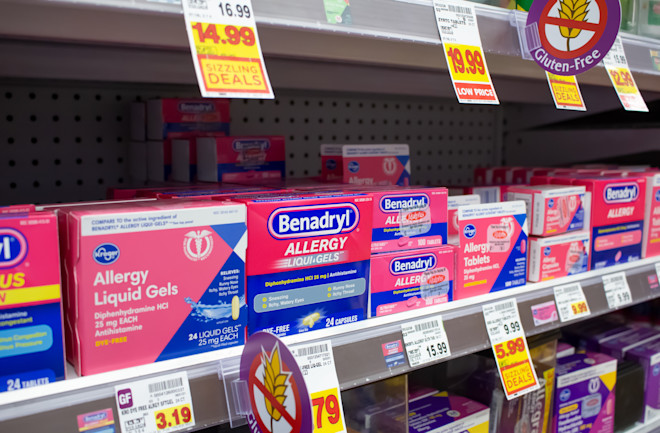With your already increased risk of dementia, has your doctor warned you of this problem? Known since the late 2000s.
Your risk of dementia, has your doctor told you of this? Your doctor is responsible for preventing this!
1. A documented 33% dementia chance post-stroke from an Australian study? May 2012.
2. Then this study came out and seems to have a range from 17-66%. December 2013.`
3. A 20% chance in this research. July 2013.
4. Dementia Risk Doubled in Patients Following Stroke September 2018
Do you prefer your doctor incompetence in this NOT KNOWING? OR NOT DOING?
The latest here:
Do Certain Medications Like Benadryl Boost the Risk of Dementia?
A long list of commonly prescribed and over-the-counter drugs may increase your likelihood of developing Alzheimer’s disease and other forms of dementia.

Newsletter
Antihistamines like diphenhydramine — the active ingredient in Benadryl, Tylenol PM and many cold medicines — are prescribed and sold over the counter to combat allergic reactions, dry up congestion and aid sleep.
While these drugs are useful, they also leave users feeling confused, sleepy and dizzy. This much is apparent from the inside sticker on a bottle of Benadryl tablets, which warns that “drowsiness may occur” and to “be careful when driving a motor vehicle.”
However, another, longer-term risk is absent from the warning label. A significant body of research has shown that diphenhydramine and other similar drugs increase the risk of developing Alzheimer's disease and other types of dementia.
What Are Anticholinergic Drugs?
Among pharmacologists, the class of medicines that Benadryl belongs to are known as anticholinergic drugs. These compounds suppress the activity of a neurotransmitter called acetylcholine, which is involved in memory and cognition, as well as muscle function elsewhere in the body. Aside from antihistamines, other anticholinergics include antidepressants and medications used to treat an overactive bladder.
Read More: How Air Pollution Can Increase Risk Factors for Dementia
In 2015, an investigation in JAMA Internal Medicine analyzed the risk of anticholinergics in 3,434 people over the age of 65 in Seattle over the course of a decade, the largest and longest study to date. The research clearly showed that participants taking anticholinergic drugs developed dementia and Alzheimer’s more often.
Importantly, risk increased along with cumulative dose — meaning that patients that took more doses of an anticholinergic over time were even more likely to develop dementia.
When Did This Association Emerge?
Researchers have long observed that the brains of a patient with Alzheimer’s disease produce less acetylcholine than is normal. In the past, medical scientists have even used a particularly powerful anticholinergic, called scopolamine, to mimic the symptoms of Alzheimer’s in study participants. The same drug is infamous in Colombia, where criminals have used it to render victims docile, confused or unconscious.
For a long time, pharmacologists thought that the delirious side-effects of drugs like scopolamine or benadryl were benign and short-lived. This belief went unchallenged until the early 2000s. Around that time, Indiana University geriatrician, neuroscientist and professor of aging research Malaz Boustani was working with a population of elderly Black patients.
“I noticed, from my own experience with one or two patients in my practice, that stopping these medications didn’t actually improve their brain health,” Boustani says. “So I started to design epidemiological studies to investigate the long-term effect of anticholinergics.”
His research, though confined to small sample sizes at first, clearly showed an association between dementia and anticholinergics. And he wasn’t the only one to notice. Throughout the late 2000s and early 2010s, a flurry of studies linked dementia to anticholinergic use in various geriatric populations.
By the time the JAMA investigation came out, it merely confirmed the obvious: anticholinergics had a dangerous association.
No comments:
Post a Comment